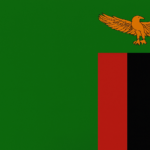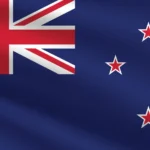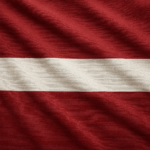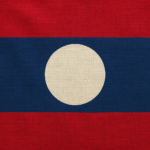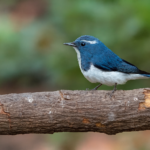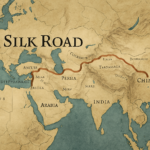
Burundi, a small East African nation with a complex history and a rich cultural heritage, has been shaped by a series of historical events, numerical insights, and diverse societal dynamics. From its struggle for independence to its vibrant traditions, Burundi’s story is both captivating and enlightening. In this exploration, we delve into 25 historical facts and numerical trivia that illuminate the multifaceted tapestry of Burundi’s past and present. These insights offer a glimpse into the challenges and triumphs that have defined this nation, all the while acknowledging that the landscape and circumstances may have evolved since the last available data in September 2021.
Independence Date: Burundi gained independence from Belgium on July 1, 1962. This marked a significant turning point in the country’s history, as it transitioned from being a Belgian colony to a sovereign nation. Independence allowed Burundi to begin shaping its own political, social, and economic future, although it would later grapple with ethnic tensions and political instability.
Population: As of my last knowledge update in September 2021, the estimated population of Burundi was around 11 million people. The population figure highlights the demographic importance of the country, and it is worth noting that Burundi is one of the most densely populated nations in Africa, with much of its population residing in rural areas engaged in agriculture.
Land Area: Burundi covers an area of approximately 27,830 square kilometers (10,740 square miles). This relatively small land area is home to a diverse range of landscapes, from highlands to Lake Tanganyika’s shores, making it a geographically interesting country.
Capital: The capital city of Burundi is Bujumbura. Bujumbura is the largest city in the country and serves as its political and economic center, situated on the northern shore of Lake Tanganyika. It is a vibrant city with a mix of French and African influences, reflecting Burundi’s colonial history.
Official Language: Kirundi, French, and English are the official languages. Kirundi is the most widely spoken language, while French is commonly used in government and education. The addition of English as an official language in 2017 reflects a desire to enhance communication and trade ties with English-speaking countries.
President: As of September 2021, Evariste Ndayishimiye was the President of Burundi. Ndayishimiye was elected in 2020, succeeding Pierre Nkurunziza, who had ruled for 15 years. His presidency marked a political transition, and his leadership would influence the direction of the country’s domestic and foreign policies.
Tutsi-Hutu Conflict: Burundi has a history of ethnic conflict between the Tutsi and Hutu populations, which has led to periods of violence and civil war. This conflict, deeply rooted in the country’s history, has had a profound impact on Burundi’s social and political landscape. It’s important to note that efforts have been made to reconcile and promote peace among the ethnic groups.
Civil War: Burundi experienced a devastating civil war that lasted from 1993 to 2006. The conflict resulted in significant loss of life and destruction, and its legacy still influences the country’s politics and society. It was a complex conflict, characterized by ethnic divisions, and efforts have been ongoing to rebuild the nation in the post-war era.
Economic Challenges: Burundi is one of the world’s poorest countries, with a significant portion of the population living in poverty. Economic challenges, including limited infrastructure and a predominantly agrarian economy, have posed significant obstacles to the country’s development and the well-being of its people.
UNESCO World Heritage Site: The Kibira National Park, a lush rainforest, is part of the Burundi Forest Reserve and a UNESCO World Heritage Site. This designation highlights the ecological significance of the region, which is home to diverse wildlife and is crucial for conservation efforts. Kibira National Park attracts both local and international visitors, contributing to Burundi’s tourism sector.
Religion: The majority of the population in Burundi adheres to Christianity, with a significant Muslim minority. Christianity, primarily Catholicism and various Protestant denominations, has a strong presence in the country, shaping both religious and cultural aspects of life. The Muslim minority in Burundi is predominantly Sunni and contributes to the religious diversity of the nation.
Lake Tanganyika: Burundi is one of the countries that border Lake Tanganyika, which is one of the deepest freshwater lakes in the world. Lake Tanganyika is not only a source of freshwater for the region but also supports fishing and trade activities. It plays a crucial role in the daily lives and economies of the people living near its shores.
GDP: The Gross Domestic Product (GDP) of Burundi was around $3 billion in 2020. The relatively modest GDP reflects the economic challenges facing the country. Agriculture, primarily subsistence farming, is a significant contributor to the economy, and efforts have been made to diversify and boost economic growth.
Coffee Production: Coffee is one of the key exports of Burundi, and it plays a crucial role in the country’s economy. The coffee sector is a vital source of income for many Burundians, and the country’s coffee is known for its quality. Efforts to improve coffee production and promote exports have been ongoing to support economic development.
Geographical Center: Burundi is often considered one of the geographical centers of Africa. The country’s location near the African Great Lakes region places it at a crossroads, and its geography contributes to its cultural, economic, and geopolitical significance.
Colonial Period: Burundi was a part of German East Africa before being colonized by Belgium. The colonial history of Burundi is an essential part of its past, shaping many aspects of its culture, society, and political institutions.
First Republic: Burundi was a monarchy until 1966 when a Hutu-led coup established the First Republic. The transition to a republic marked a significant shift in Burundi’s political structure and set the stage for subsequent political developments and ethnic tensions.
Land of a Thousand Hills: Burundi is often referred to as the “Land of a Thousand Hills” due to its hilly and mountainous terrain. The picturesque landscape, with its rolling hills and valleys, has earned Burundi this affectionate nickname, and it plays a role in the country’s unique beauty and agricultural practices.
Endangered Wildlife: The country is home to endangered wildlife, including the mountain gorilla in the Kibira National Park. The presence of such precious and endangered species underscores the importance of conservation efforts in Burundi and the broader region. It also offers opportunities for ecotourism, which can contribute to the economy.
Genocide: In 1972, Burundi experienced a genocide in which an estimated 100,000 Hutus were killed by the Tutsi-dominated government. The 1972 genocide, along with the larger history of ethnic conflict, is a deeply tragic chapter in Burundi’s history. Understanding this history is crucial for comprehending the complex sociopolitical landscape of the nation and ongoing reconciliation efforts.
Life Expectancy: The life expectancy in Burundi is relatively low, with an average of around 61 years. This statistic underscores the healthcare challenges in the country, including access to medical services, sanitation, and disease prevention. Efforts to improve healthcare and increase life expectancy are ongoing but face various obstacles.
UN Peacekeeping: Burundian troops have been part of United Nations peacekeeping missions in various countries. Burundi has contributed troops to international peacekeeping efforts, demonstrating its commitment to global security and peace. This participation reflects the country’s role in international diplomacy and peace initiatives.
Burundian Drumming: Traditional Burundian drumming is an essential part of the country’s cultural heritage. The rhythmic and energetic drumming is a hallmark of Burundian celebrations and rituals, and it holds cultural significance in conveying messages and stories. It has been recognized as an integral part of the nation’s cultural identity.
World’s Poorest Country: At some points, Burundi has been ranked as one of the world’s poorest countries in terms of GDP per capita. The economic challenges facing Burundi, including limited industrialization and reliance on subsistence agriculture, have led to a low GDP per capita. Addressing poverty and fostering economic development remain significant challenges.
Bilateral Relations: Burundi has had diplomatic relations with various countries, and it has been involved in regional peace and security initiatives. These diplomatic relations play a crucial role in Burundi’s international engagement. The country’s involvement in regional peace and security initiatives underscores its commitment to regional stability and cooperation in East Africa.
Burundi FAQs
Here are some frequently asked questions about Burundi, along with detailed answers:
1. What is Burundi’s history like?
Burundi has a rich history dating back centuries. Oral legends speak of a founder named Cambarantama, while the first concrete evidence of a Burundian state emerges in the 16th century. Unlike many African nations, Burundi’s borders predate colonialism.
- Early Kingdom: Burundi existed as a kingdom for a long period. The ethnic groups Hutu, Tutsi, and Twa have co-existed in the region for over 500 years.
- Colonial Era: European influence arrived in the 19th century. Germany colonized Burundi and neighboring Rwanda together as Ruanda-Urundi in 1903. After World War I, Belgium took control.
- Independence and Conflict: Burundi gained independence in 1962. However, the post-colonial era has been marked by social unrest and ethnic violence, particularly between Hutu and Tutsi groups. A civil war raged from 1993 to 2005, claiming over 200,000 lives.
2. What is the current situation in Burundi?
Burundi remains one of the poorest countries globally. It grapples with challenges like:
- Poverty: Nearly 75% of the population lives below the poverty line.
- Food Insecurity: Chronic malnutrition affects 60% of children due to inadequate food production and poverty.
- Rapid Population Growth: With a high birth rate and young population, pressure on resources is immense.
- Political Instability: Burundi has a history of political unrest, and the government has been criticized for human rights abuses.
Despite these difficulties, there have been improvements:
- Refugee Return: Over half a million Burundian refugees have returned home in recent years, but reintegration is challenging.
- Economic Development: There have been some social and economic improvements since the civil war.
3. What is the geography and landscape of Burundi?
Burundi is a landlocked nation in Central Africa, bordering Rwanda, Tanzania, and the Democratic Republic of the Congo. It’s a small country with a hilly terrain, with the Ruwenzori Mountains running along its western border. Lake Tanganyika, one of Africa’s Great Lakes, forms a significant portion of the southwestern border. The climate is mild and temperate, with a wet and dry season.
4. What is the culture of Burundi?
Burundian culture is rich and vibrant, with a strong emphasis on community and tradition.
- Drumming: Burundi is famous for its skilled drummers, known as “les tambourinaires.” Drumming plays a significant role in rituals, ceremonies, and celebrations.
- Religion: The majority of Burundians are Christians, with a significant Catholic population. Traditional religious beliefs also hold importance.
- Language: Kirundi is the national language, while French and English also have official status.
- Arts and Crafts: Burundi boasts a thriving art scene, with basket weaving, pottery, and wood carving being popular crafts.
5. Is it safe to travel to Burundi?
The safety situation in Burundi can be volatile. While some areas are considered relatively safe, there is a risk of political unrest and violence. It’s crucial to check the latest travel advisories before planning a trip. If you do choose to visit Burundi, be aware of your surroundings, exercise caution, and stay informed about local developments.
Additional Points of Interest:
- Burundi is one of the most densely populated countries in Africa.
- Agriculture is the backbone of the economy, with most people relying on subsistence farming.
- The country faces challenges like natural disasters such as floods and droughts.
I hope this comprehensive FAQ provides a good overview of Burundi!
